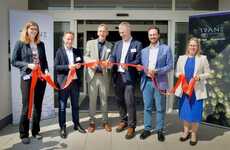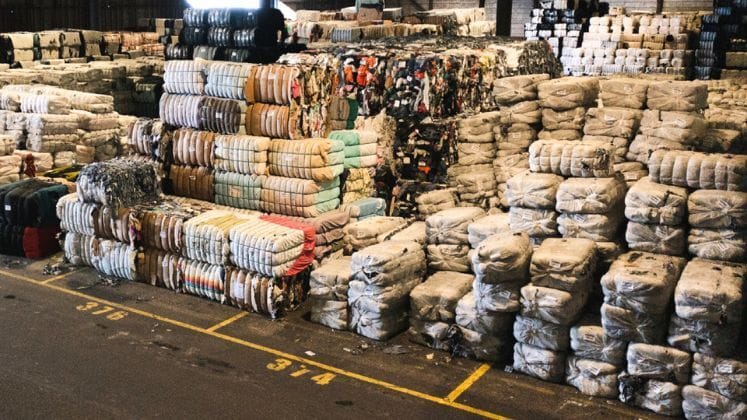
Debrand Opens a 32,000-Square-Foot Center in the US
References: apparelresources & fashiondive
Debrand, a Canadian firm specializing in end-of-life textile logistics, has launched its first U.S. textile sorting facility in Columbus, Ohio. This center aims to enhance textile recycling infrastructure in North America by integrating both automated and AI-supported sorting systems alongside manual techniques. The move is part of Debrand’s strategy to address the growing demand for sustainable textile disposal solutions.
The high-tech textile sorting facility's location in Ohio is strategic as it positions the center near major clothing brands. The facility will handle a variety of textiles, providing services such as sorting, recycling, resale, and donation.
As sustainability becomes a more pressing concern, the expansion of textile recycling infrastructure supports efforts to reduce waste and promote circular fashion practices. Additionally, Debrand's integration of new technologies and partnerships with chemical recyclers could lead to more effective recycling solutions.
Image Credit: BC Business
The high-tech textile sorting facility's location in Ohio is strategic as it positions the center near major clothing brands. The facility will handle a variety of textiles, providing services such as sorting, recycling, resale, and donation.
As sustainability becomes a more pressing concern, the expansion of textile recycling infrastructure supports efforts to reduce waste and promote circular fashion practices. Additionally, Debrand's integration of new technologies and partnerships with chemical recyclers could lead to more effective recycling solutions.
Image Credit: BC Business
Trend Themes
1. Automated Textile Sorting - Utilizing advanced technology, this facility demonstrates how automation can enhance efficiency and accuracy in textile recycling processes.
2. AI-supported Recycling - The integration of AI in sorting systems signifies a leap forward in processing speed and precision, minimizing human error and maximizing output.
3. Circular Fashion Infrastructure - Establishing large-scale textile recycling centers contributes significantly to the circular economy by providing sustainable end-of-life solutions for textiles.
Industry Implications
1. Sustainable Fashion - The rise of high-tech textile sorting centers aligns with the industry's shift towards sustainability, reducing waste and promoting eco-friendly practices.
2. AI and Automation - Innovations in AI and automated sorting systems open up new possibilities for scalability and precision in various recycling-related industries.
3. Waste Management - High-tech solutions in textile sorting and recycling emerge as crucial components in modernizing waste management systems and reducing landfill dependency.
5.7
Score
Popularity
Activity
Freshness























